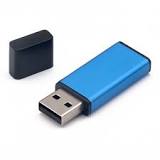10 Best Fiber Supplements Of 2024, Per Doctors And Dietitians

Before you choose a fiber supplement, it can help to talk with your doctor. "When choosing a fiber supplement, it's important to consider your specific health needs," says Costa. She recommends "taking into account any unique symptoms you may be experiencing, such as constipation or diarrhea." This can help direct your supplement search and can rule out any underlying conditions. Then, consider these important criteria in a new fiber supplement:
Type of fiber
Begdache recommends checking to see if your fiber supplement carries a mix of both soluble and insoluble fiber. "It is recommended to have a mix of both with zero sugar," she explains. No matter what type of fiber you're taking, it's also important to remember that you need to increase your water intake when taking a fiber supplement. "Taking fiber without increasing fluid leads to constipation," Begdache says.
Fiber source
The fiber source is worth noting before you buy a new supplement, too. "Some fibers are natural and others are synthetic," says Dr. Dasgupta. There isn't an advantage to taking one over the other, so it really comes down to preference. "Flaxseed and oat bran are examples of all-natural sources of fiber, while methylcellulose and polydextrose are synthetic, Dr. Dasgupta says. You'll know if your fiber has these by looking at the ingredients list on your supplement. Celiac people in particular want to look out for wheat dextrin. "It is semi-synthetic, meaning it is chemically processed from natural wheat starch but has no added ingredients. Because it is derived from wheat, it’s not suitable for people with celiac disease."
Preferences
Other things you should look out for when shopping for a fiber supplement include price point and the form it comes in (more on that later!). You should choose something that fits into your budget, and that you're comfortable taking. For example, if you don't like swallowing pills, you may enjoy taking a liquid form of fiber as opposed to a tablet.


 Malaysia
Malaysia Argentina
Argentina  Australia
Australia  Austria
Austria  Brazil
Brazil  Canada
Canada  Germany
Germany  Ireland
Ireland  Italy
Italy  Mexico
Mexico  New Zealand
New Zealand  Poland
Poland  South Africa
South Africa  United Kingdom
United Kingdom  United States
United States 









